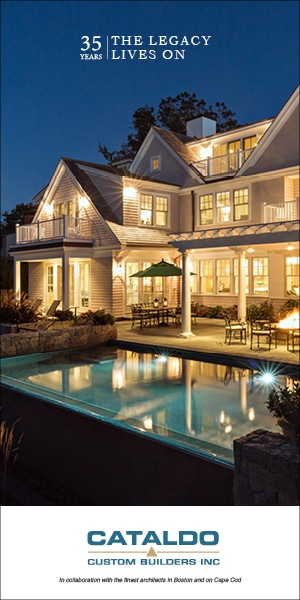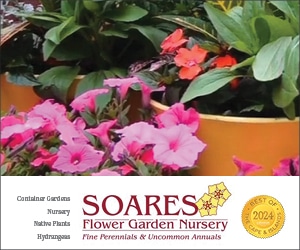
She Made a Smooth Transition
Cape Cod Life / September/October 2016 / Art & Entertainment, People & Businesses
Writer: Emily Penn / Photographer: Dan Cutrona
She Made a Smooth Transition

Cape Cod Life / September/October 2016 / Art & Entertainment, People & Businesses
Writer: Emily Penn / Photographer: Dan Cutrona
Mid-career change was key for the owner of The Chatham Fiddle Company.

Photograph by Dan Cutrona
While not everyone can turn a passion into a life’s work, Rose Clancy has turned her love of violins and Irish music into a thriving business in downtown Chatham. “My life would be completely different without music,” Clancy says.
Before launching the Chatham Fiddle Company in 2011, Clancy had a successful career at her family’s moving company in New York City. But, she says, “in the back of my head, I always wanted to make violins.”
At the age of 40, Clancy enrolled in the North Bennet Street School in Boston, which offers training in traditional trades and fine craftsmanship, to learn to make violins. After three years of intensive schooling—an experience she called “life changing”—Clancy moved to Chatham, where her family has a summer home. She loved the area so much she bought a house of her own in 2003 and eight years later founded the Chatham Fiddle Company. The quaint red-brick building on Main Street is equipped with studios for fiddle lessons, space for intimate in-house concerts, and a woodworking work shop. “When I graduated from violin-making school, this was an ideal place to start my business,” she says.
According to Clancy, “fiddle” is just a nickname for a violin that people who play Irish or Bluegrass music tend to use. These genres, among others such as Appalachian, are classified as fiddle music. She notes that the fiddle isn’t always played with sheet music. Instead, someone plays a tune and others learn it by ear. “In the Irish traditional world,” Clancy says, “learning by ear is huge.”
While there are subtle differences in violin styles, Clancy says the big differences are in price and quality. “You can buy a nice student violin for around $500. It goes up from there!” The cream of the crop, a Stradivarius, can sell for $15 million.
Growing up in New York, Clancy was surrounded by music. She learned traditional Irish music from her father, Eugene Clancy, who had come to the United States from Armagh in Northern Ireland with his two brothers in the early 1960s to tour their band, the Irish Ramblers. After touring, Eugene Clancy decided to stay. “[In Northern Ireland] there had been trouble, and I guess I thought I should transfer to a better life in the U.S.,” he says. “And I’m so glad that I did.”
Rose Clancy attended Increase Miller Elementary School, where she took classical music lessons. She began playing violin in the third grade under the tutelage of her music teacher, the late Paul Ehrlich. “He made learning how to play a difficult instrument fun,” she recalls. “I value that classical music training taught me how to properly hold a bow and gave me a strong foundation .”
Clancy’s father says he was shocked when Rose decided to leave the family business, but when he learned she had been accepted at the North Bennet Street School, he was thrilled. “I know she is delighted with her decision,” he says.

Photograph by Dan Cutrona
Making a violin is a painstaking, time-consuming task. The craftsperson starts by constructing the sides, or ribs, of the violin, using a wooden form cut to the exact outline of the inside of the instrument. The top plate of a violin is made with spruce, while the back plate is made with maple; the two plates are then glued together. The neck and scroll are also made with maple and carved from a block of wood. Most of the work is done using hand tools. Clancy says it takes about 250 hours to make one violin, though her first one took a year to complete. She has sold about 30 of her handmade instruments. Most full-time makers can produce only about 10 handmade instruments a year, she says. “Playing an instrument you have made is a cool experience,” she says. “Not many people can say they’ve done that.”
Clancy’s students range in age from 4 to 78. She loves how quickly her younger students learn. Teaching those who start playing as adults, she says, is a very different process. “Their joints aren’t great, so it can be more of a challenge for them, but they can comprehend better.”
“It’s satisfying to see students go out and play music after I have been giving them lessons,” Clancy adds. Some of her students even step onto the stage during her weekly summer concerts and play for the crowd.
Marilyn Whelden, 68, of Chatham, is a relatively new student. “I used to play in grade school, but life got in the way,” says Whelden. For her anniversary last year, her husband bought her a gift certificate to the fiddle shop for her first lesson in many years.
Whelden says the experience has opened her up to a whole new world. In grade school, Whelden played more traditional, classical music. Playing traditional Irish music, she says, “has been an eye-opener for me because it’s a whole genre I didn’t know of before…. It’s a process, but it all comes back—at least it did for me,” she says with a laugh.
“It’s been wonderful for Chatham to have Rose and her family bring this to Chatham,” Whelden adds. “She is so engrossed in the Irish tradition.”
House concerts are a big part of the fiddle company’s mission. In addition to hosting weekly Tuesday night summer concerts, Clancy runs concerts throughout the year featuring well-known artists like Robbie O’Connell and Frankie Gavin from the Celtic world. “People who are touring and might have an off-night do a house concert for us,” says Clancy. “We are privileged to have them come to Cape Cod.” All concerts are not-for-profit; rather, Clancy asks for donations, which support the performing artists.
Clancy says the concerts provide a relaxed, inviting environment for both the performers and the audience. Right before one show last summer, Clancy stood on stage with her father and, addressing those in attendance, said with a smile, “We don’t even know what we are going to be playing today, but let’s just play.” Soon the musicians were strumming, feet were tapping, and everyone was singing along to the music.
The Chatham Fiddle Company is at 875 Main Street, Chatham. For more information, visit chathamfiddlecompany.com, or call 508-348-1885.
Emily Penn is a sophomore and an aspiring journalist at the University of Wisconsin-Madison.



